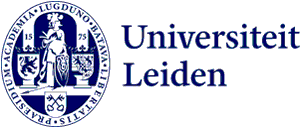Lecture | Global Questions Seminar
Politics in Late Imperial Austria and Contemporary Europe: Back to Normal?
- Date
- Friday 31 October 2025
- Time
- Serie
- Global Questions Seminar 2025-2026
- Address
-
Johan Huizinga
Doelensteeg 16
2311 VL Leiden - Room
- 006
Drawing on joint work with Philip J. Howe, Adrian College, Edina Szöcsik, University of Fribourg, and David Steinecke, University of Konstanz.
Abstract
Politics in late Imperial Austria, the Western half of the Austro-Hungarian monarchy, were characterized by simultaneous economic and center-periphery conflicts. The 1907 legislative elections were the first to fill all seats in the lower house of parliament on the basis of universal manhood suffrage. Voters chose candidates in an environment characterized by both the birth of nationalism in a multinational society that lacked a linguistic majority, and the transformation of relations among economic sectors and occupational classes through rapid industrialization. Political parties aimed to shape constituencies in line with their ideologies, appealing to them as “Czechs", “Germans", “Workers" or “Catholics".

In this talk, I will argue that late Imperial Austria bears more resemblance with present day politics in Europe than the Cold War period during which many modern theories of electoral democracy were developed. In the Cold War period, domestic political conflict was often reduced to questions of redistribution and what role the state should play in the economy. In historical perspective, this seems more like an exception than the rule. As nationalists attack supranational integration today, so did nationalists challenge the multinational Habsburg Empire. Then as now, politics in Europe is as much about “who gets what, when and how” as about who the “who” is – about who should be part of the demos that exercises its sovereignty through elected representatives.
My talk builds this thesis based on the main results of a research project that studied electoral competition and parliamentary representation in the western (Austrian) half of the Austro-Hungarian monarchy between 1897 and 1914. The project collected and content-analyzed the electoral manifestos published by nearly all Czech and German-speaking parties that ran in the 1897, 1900/1901, 1907, and 1911 legislative elections. It digitized representatives’ parliamentary roll-call votes between 1907 and 1914, their electoral party labels and ideologies, their membership in parliamentary clubs and parliamentary professional associations, and their electoral districts' socio-economic and ethno-national composition.
Global Questions Seminar
The motto of the Institute for History’s research programme is ‘Global Questions, Local Sources’. Across all areas and time periods, researchers of the Institute focus on important processes such as migration, colonialism, urbanization, and identity formation.
The ‘Global Questions Seminar’, for which we invite distinguished international colleagues to discuss the interplay between global and local issues from the past, brings all staff members of the Institute for History together.
